

Term: 1





Transition Year is a one-year programme that aims to develop a solid
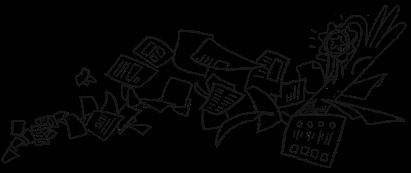
What subjects would you like to do for the Leaving Certificate?
List the opportunities you will have to develop learning and study skills during Transition Year:

What were your favourite subjects in Junior Certificate?

“You get out what you put in!” How do you think this expression relates to Transition Year?
list some of the opportunities to enhance your life skills during Transition Year:

List some of the opportunities for personal development during Transition Year:

What course(s) are you considering after the Leaving Certificate?

What subjects and skills are needed for this career?
What key knowledge areas and skills can you learn/develop during Transition Year to achieve your career ambition?

Though it may not seem like it now, there is life after school! All the books, study and exams are part of a well-rounded education, even though memorising all of Hamlet may not seem like it.
The other part of a well-rounded education is developing you as an individual, giving you essential life skills, and Transition Year is one of the places where this type of education takes place. Used well, Transition Year can be of great benefit. The pressure of exams is replaced with new ways of learning through experiences and opportunities to take part in projects or events.
In fact, it has been shown in studies that students who take Transition Year gain better results in the Leaving Certificate. It is felt that this is as a direct result of the broader range of skills they learn during Transition Year, i.e. they are better able to cope with the demands of the Leaving Certificate. The aim of Transition Year is to give you a set of skills that are an essential part of 21 st century life.
These skills are what future employers will be looking for in potential candidates like you, or indeed what a entrepreneur needs to succeed.

Creativity, critical thinking, problemsolving, decisionmaking and learning

Citizenship, life and career, and personal and social responsibility

Information and communications technology (ICT) and information literacy

Working Communication and collaboration

By involving yourself in the opportunities throughout the year you will be learning and acquiring new skills, sometimes without being even aware of it.
When preparing for exams we learn explicitly; we learn things by heart and memorise them in order to repeat them in exams.
Transition Year, however, teaches implicitly by giving you tasks and challenges that get you to think differently and use your initiative. For example, you could be asked to organise a quiz for first years.

Opportunities to try new subjects to make an informed decision about LC subjects

Lifestyle choices, health awareness, challenging yourself

Awareness of the world around you, the wider community

Opportunities to learn about different work environments and career choices
There are a vast number of activities that take place over Transition Year: community care, work experience, concert/fashion show, Young Scientists, mini-company, a play or musical production, Gaisce, Young Social Innovators, etc. For now, let us take a look at two of these activities: work experience and mini-company and reflect on the benefits of these experiences.

Work experience is normally an integral part of Transition Year. But is it just a week off school, or is there a greater value attached to it? Let’s reflect on why work experience is important.
9 Prepares you for the world of work
9 Shows you the importance of punctuality, dress code and good presentation
9 Teaches you to work in a team or on your own initiative
9 Develops your communication skills
9 Shows you how to interact with colleagues.
Work experience also gives you a chance to see what you might like to do as a career, helping you to make a better choice when deciding to go on to 3rd level education.
This is probably the only time in secondary school you will get this opportunity, so choose wisely and try to get work placements that are varied and align with your career aspirations. Make work experience a valuable learning experience for you.
After your work experience you are given a chance to assess how well you did, if you would like to take on that job as a career, what skills you may have learned or observed and your understanding of the world of work.
So clearly as a result of work experience, you will grow as a person, have a better understanding of the work environment and also how you relate to that environment.

The mini-company is a project where you and your classmates set up your own company.
You get to set up the business right from the initial concept, thinking of a really good name, finding a product or service, coming up with a marketing strategy, advertising, sourcing supplies, negotiating with suppliers, appointing job roles to team members, holding meetings and preparing reports - everything a real business would need to do.
This gives you hands-on learning experience and teaches you:
Organisation
Team Work
Planning
Analysis
Peer Leadership
Negotiation
Marketing
Customer relations
Competition
Innovation
Presentation
Accounting
Product quality
The mini-company is also a good project for getting the whole class involved as everyone can have a role to play. You can also take your company to a regional mini-company trade fair, where lots of different mini-companies can showcase their ideas. You also get to meet and interact with other TY students to exchange ideas and see what challenges they may have faced. It’s also good fun and a great place to make new friends!
Participation in these projects not only gives you 21st century skills but gives you the opportunity to take part in more self-directed learning, taking you out of the classroom and into a real working environment. On top of these types of projects, your school may also take you on school trips.
Your school may encourage you to take part in Young Social Innovators or the Young Scientist Exhibition, where you can look at issues that you are interested in as a group or an individual.
A 21st century citizen needs 21st century tools to get them working creatively and innovatively, so let’s look at some of the tools you can use to get the most from that brain of yours!
Brainstorming may be something you’ve heard of before or maybe even used. It is often used in group projects to help generate ideas.
It is a creative way of finding solutions to problems as it brings in different people with different perspectives.
Brainstorming could be used when preparing for a mini-company to help generate product or marketing ideas and is a good way to get everyone involved in the process.


1. Define the problem or challenge.
2. Set a time or idea limit.
3. Have a facilitator write down ideas as people call them out.
4. No criticism. This is about going with the first thing that pops into your head, no matter how silly it seems.
5. When the time is up, evaluate all ideas as a group. Keep the original problem in mind.
6. The idea that everyone feels works best is the idea to go with!
7. Keep note of the other ideas, in case the first doesn’t work out! 6 6 6 6
Sometimes we only see all the negatives attached to a solution or situation, while other times we only see the positives. So, how do you get a balance?
For example, if you want to set up a minicompany to sell shamrock on St. Patrick’s day and your group is divided 50/50 on whether or not to run with the idea, what do you do? This happens on a daily basis in companies. What do they do? Does the strongest personality win?
Wouldn’t it be great if we had a step-bystep process to help us with decision making? A process that allows us to look at the issue from different perspectives and then, based on all the different perspectives, make a decision. Different ideas would be evaluated using the same
step-by-step process, ensuring all are evaluated equally and hopefully the best would emerge.
Edward De Bono devised such a process for decision making. It is called De Bono’s Six Thinking Hats. This is how it works:
You look at a problem from different perspectives (positive, negative, etc.) and each perspective is identified with its own coloured ‘thinking hat’ to separate the different aspects of thinking. This way we can pay full attention to each aspect of the problem or solution in turn.

lets you focus on the data available. Look at the information you have and see what you can learn from it. This is where you analyse past trends, and try to conclude from historical data.
“ Has any other mini-company tried selling shamrock before? Did they come up against any problems? Are there people in your school/area who’d buy shamrock? Perhaps a survey to find out?”

lets you think positively. It is the optimistic viewpoint that helps you to see all the benefits of the decision and the value in it. Yellow Hat thinking helps you to keep going when everything looks gloomy and difficult.
“ People love spending money on Irish goods! Shamrock is a good way to green up your school uniform around St. Patrick’s day!”


lets you look at all the bad points of the decision, cautiously and defensively. It can help you to spot fatal flaws and risks before you embark on a course of action.
“ How difficult will shamrock be to source? Is it easy to transport and package? Deliveries will have to be right on time so the shamrock doesn’t wilt.”
stands for process control and is worn by people chairing meetings. They may direct the meeting towards other colours if the meeting is becoming too one sided or concentrating too much on the negative/ positive.
“ Hmm, not enough red, think more red thoughts!”

lets you use creativity. This is where you can develop creative solutions to a problem. It is a freewheeling way of thinking, in which there is little criticism of ideas.
“ Could you maybe grow your own shamrock? Can you come up with a different way of wearing it? Something a bit more modern or fun?”

lets you look at problems using intuition, gut reaction, and emotion.
“ Is there another product that may be suited to selling all year round? “
The RED HatThere are many different ways to solve a problem. One simple technique for problem solving is the GROW technique. You can use the GROW technique in work or school or even just for problem solving in life.
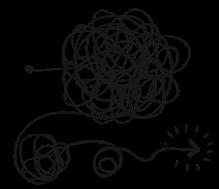
What is your goal? What are you aiming for? I’ve got my sights set on getting a car so I can be more independent and make my way to football practice.
What is the reality? That is, how far away from your goal are you? I can’t afford to buy a car right now. I have €300 in savings in the bank and it’s my birthday soon but the type of car I want costs around €700. Plus I need to consider the cost of lessons, insurance and road tax.
What’s stopping you and what can you do to remove these obstacles? My main obstacle is money. I have a few options though; I can take on more hours at the weekends in my part-time job. I can settle for a cheaper car or maybe I can look at getting a good bicycle or a moped instead for now.
The steps to succeeding are the options you have and the way forward is walking these steps. I am happy enough to just get a bicycle for now but I am going to take on more hours at the weekend and draw up a savings plan that will let me buy a car by the time I am finished school.
Mind maps are a useful form of note-making and planning because they engage both sides of your brain in the learning process. The left side of your brain is used for remembering lists, words and numbers, while the right side of your brain is your creative side. If we use both sides of our brain, we are getting the best of both worlds, combining logic and imagination to create a winning team!
1. Use blank paper in landscape format (on its side).
2. Start your mind map with a central image representing what the topic is about.
3. Use branches to connect everything to the central image.
4. Use key words only, one for each branch.
5. Use colour and images throughout; remember, using these tools will engage the brain a lot more.
6. Use images to represent a word and use your imagination when creating your images. Eventually you will get something that looks a little like this:
By using these mind map techniques your brain will engage with the topic a lot more productively. Images will engage your imagination, while the branches connecting everything together will help you learn by association. This involves linking information that we already know to new information.
As you can see, it looks like a map! Mind maps can be used for problem solving but as we said before it is a useful way of taking notes and can also be a good way of organising your thoughts and ideas when planning an essay or studying.
Learning is a complex business, not only because there are many different types of learning but because as individuals we all have unique learning styles.
Those unique learning styles reflect our individual personalities as well as our different intelligences. Answering the following questions will help you to reflect on your own learning styles and preferences. Take a look at the five types of learning to the right and complete the questions below to gain a better understanding of how you learn.
Learning the facts, figures and information you need to know to pass your exams.
Learning new skills/crafts like computers, cookery, mountaineering, construction etc.
Experiencing different methodologies and styles of learning.
Learning interpersonal skills, teamwork, tolerance, co-operation etc.
Intrapersonal skills, reflection, selfawareness, self-esteem etc.

I have found learning enjoyable when:
Types of teachers/people I have learned best from have been: (Don’t use names.)
I have failed to learn when:
Types of teachers/people I have failed to learn from have been: (Don’t use names.)
I can learn on my own if:
If I avoid learning it is because:
The things I enjoy most about school are:
The things I find most challenging about school are:
Rate your performance at school:
I work very hard.
I work reasonably well.
I do as little as I can to get by.
The reason I gave the above answer is:
The Multiple Intelligences Theory, as defined by Howard Gardner, challenges the idea that people have intelligence which can be measured as a single value – your IQ.
Gardener believes that people are born with an intelligence profile which shows itself in many different ways. He has identified eight different intelligences and has done research which indicates that intelligence is multiple and occurs in different parts of the brain. This theory has implications for how teachers teach and how learners learn.
The ability to understand yourself, to be reflective, know what you can or can’t do and where to get help. Used by philosophers, psychologists and church ministers.
The ability to think musically and to hear, recognise and remember patterns. Used by musicians, mathematicians, artists and dancers.
The ability to understand cause and effect; to manipulate numbers. Used by scientists, mathematicians and engineers.
Rather than asking, “How intelligent is that student?” we should now ask, “How is that student intelligent?” Transition Year helps to develop all the intelligences. Each student will have an opportunity to discover what combination best represents them, which in turn has implications for how best they learn.
The ability to interpret space and to navigate. Used by pilots, artists, architects and racing drivers.
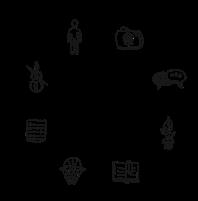
The ability to control body movement and the capacity to handle objects skillfully. Used by athletes, actors and dancers.
The ability to understand and relate to others. Used by teachers, salespeople, politicians, human resource managers, doctors and psychologists.
The ability to use language. Being able to express what’s on your mind and to understand others. Used by poets, novelists, politicians and lawyers.
The ability to discriminate between living things and be sensitive to the natural world. Used by botanists, ornithologists, beauticians and top chefs.
Understanding the different types of intelligences is key to finding how you learn best. Transition Year offers the opportunities to not only develop some of your stronger intelligences but also to discover more. Below is more information on the types.
Tends to hum/burst into song
Responds to rhythm
Remembers melodies and the words in songs
Notices background sounds
Sensitive to sound patterns
Possible career paths: musician, disc jockey, singer, composer
Perceives the visual world accurately
Displays aptitude for drawing, painting, sculpture
Sensitive to colour, pattern, texture
Displays mind mapping capacities
Thinks in 3D terms and reads maps and plans easily
Possible career paths: navigator, sculptor, visual artist, inventor, architect, interior designer, mechanic, engineer
In touch with one’s own feelings
Knows weaknesses and strengths
Self-reflective/aware and mindful
Comfortable alone
Tends to day dream
Seeks personal meaning and sets personal goals
Possible career paths: theorist, philosopher, counsellor
Sensitive to the feelings and moods of others
Energised when working with people and enjoys co-operative games
Knows how to win over others
Able to negotiate effectively
Perceives the intentions and desires of others
Possible career paths: teacher, counsellor, salesperson, politician, business person

Sensitive to the natural world
Ability to recognise pattern or species in the natural and built environment
Demonstrated by people with little or no sight
Capacity to see things in relationship to one another
Ability to classify and categorise types and models
Possible career paths: conservationist, gardener, farmer, animal trainer, park ranger, scientist, botanist, zookeeper, geologist, marine biologist, ecologist, veterinarian
Needs to be active, plays sports or enjoys activities

Enjoys language
Likes to make or build things
Uses hands when talking
Well co-ordinated
Uses tactile sense to communicate
Possible career paths: athlete, PE teacher, dancer, actor, firefighter, artisan
Likes word games, good at spelling
Has a feel for sentence structure
A good story teller
Enjoys puns and riddles
Likes the sound and rhythm of words
Enjoys reading
Possible career paths: poet, journalist, writer, teacher, lawyer, politician, translator
Sees connections
Analyses/categorises
Spots flaws in arguments
Enjoys numbers
Abstract thinker
Systematic approach
Possible career paths: scientist, engineer, computer programmer, researcher, accountant, mathematician
You’ve probably heard people describe Transition Year as “a doss year” where you get to sit around and do nothing, but does all of the learning and activities we’ve looked at sound like nothing?!
Yes, you get to go on school trips and have lots of fun, but you’re learning as you do so. Transition Year provides you with unique experiences and opportunities to learn in a way that you never have before. You can then take these new tools and skills on to your Leaving Certificate studies and on into the workplace.
If you’re looking for advice on any of the projects on your TY programme or need help with work experience or are just looking for some ideas, www.ty.ie is a good place to start.
The most important thing to remember about Transition Year is that you get out of it what you put in. Transition Year doesn’t have the pressure of big exams and instead focuses on participation, ongoing assessment and self-evaluation. It puts in your hands the responsibility of your own progress and learning by letting you keep a record of what you have learned along with portfolios and exhibitions of your work.
What sort of person will you be after Transition Year? Will you have skills and responsibilities that you thought you’d never possess? Will people look to you for help/advice? TY gives you the opportunity to excel at something outside of exams and books, so get involved — you’ll surprise yourself!

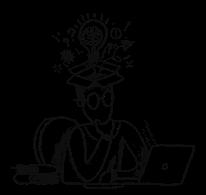
Title:
Date(s):
Film Competition – Our World
2/11/20xx to 25/11/20xx
Subject Area(s):
Overall Rating:
Describe in some detail the project/activity undertaken:
Film Studies

a film-making project where a group of us made a film about our lives as young people and the world we live in.
What did you enjoy most about this project/activity? Why?
It was great fun making a film with other people in my class.
What did you learn as a result of completing this project/activity?
Teamwork
In what ways will what you learned from this project/activity help you in the future?
I learned new IT skills in filmmaking and social skills involved in team work.
How would you rate your own level of participation during this project/activity?
Could have been better at the start because I realised that I wasted a lot of time trying to figure out things as I went along rather than taking the time in the beginning.
Title:
Film Competition – Our World
2/11/20xx to 25/11/20xx
Subject Area(s):
Film Studies

Date(s):
Overall Rating:
Describe in some detail the project/activity undertaken:
a film-making project where a group of us made an 8-minute film giving an insight into our lives as teenagers and our outlook on the world around us. We had to decide on what we would make the film about, how we were going to make the film and who was doing what jobs. We entered the film in a film competition and had a screening in our school at lunchtime.
What did you enjoy most about this project/activity? Why?
I really enjoyed this project because I got to learn exciting new skills involved in film making. I had never made a film before and didn’t really understand what was involved. We had great fun trying to decide what we were going to make the film about.
What did you learn as a result of completing this project/activity?
I learned new IT skills in filmmaking. Also, learning how to work together as a team to achieve something. I learned so much about what was involved in team work, like conflict resolution for when we didn’t agree about things and the various roles and responsibilities in a team.
In what ways will what you learned from this project/activity help you in the future?
I learned new IT skills in filmmaking and social skills involved in team work. I feel more confident about working together in team exercises. The support from our teacher when we were about to give up on the project so now I know I will ask for help when I need it.
How would you rate your own level of participation during this project/activity?
I would spend more time initially on learning how to use the software properly. Because I wasted a lot of time trying to figure out things as I went along rather than taking the time in the beginning.
Title:
Date(s):
Subject Area(s):
Overall Rating:
Describe in some detail the project/activity undertaken:

What did you enjoy most about this project/activity? Why?
What did you learn as a result of completing this project/activity?
In what ways will what you learned from this project/activity help you in the future?
How would you rate your own level of participation during this project/activity?
Title:
Date(s):
Subject Area(s):
Overall Rating:
Describe in some detail the project/activity undertaken:

What did you enjoy most about this project/activity? Why?
What did you learn as a result of completing this project/activity?
In what ways will what you learned from this project/activity help you in the future?
How would you rate your own level of participation during this project/activity?
Title:
Date(s):
Subject Area(s):
Overall Rating:
Describe in some detail the project/activity undertaken:

What did you enjoy most about this project/activity? Why?
What did you learn as a result of completing this project/activity?
In what ways will what you learned from this project/activity help you in the future?
How would you rate your own level of participation during this project/activity?
Title:
Date(s):
Subject Area(s):
Overall Rating:
Describe in some detail the project/activity undertaken:

What did you enjoy most about this project/activity? Why?
What did you learn as a result of completing this project/activity?
In what ways will what you learned from this project/activity help you in the future?
How would you rate your own level of participation during this project/activity?
Title:
Date(s):
Subject Area(s):
Overall Rating:
Describe in some detail the project/activity undertaken:

What did you enjoy most about this project/activity? Why?
What did you learn as a result of completing this project/activity?
In what ways will what you learned from this project/activity help you in the future?
How would you rate your own level of participation during this project/activity?
Title:
Date(s):
Subject Area(s):
Overall Rating:
Describe in some detail the project/activity undertaken:

What did you enjoy most about this project/activity? Why?
What did you learn as a result of completing this project/activity?
In what ways will what you learned from this project/activity help you in the future?
How would you rate your own level of participation during this project/activity?
Title:
Date(s):
Subject Area(s):
Overall Rating:
Describe in some detail the project/activity undertaken:

What did you enjoy most about this project/activity? Why?
What did you learn as a result of completing this project/activity?
In what ways will what you learned from this project/activity help you in the future?
How would you rate your own level of participation during this project/activity?
Title:
Date(s):
Subject Area(s):
Overall Rating:
Describe in some detail the project/activity undertaken:

What did you enjoy most about this project/activity? Why?
What did you learn as a result of completing this project/activity?
In what ways will what you learned from this project/activity help you in the future?
How would you rate your own level of participation during this project/activity?
Title:
Date(s):
Subject Area(s):
Overall Rating:
Describe in some detail the project/activity undertaken:

What did you enjoy most about this project/activity? Why?
What did you learn as a result of completing this project/activity?
In what ways will what you learned from this project/activity help you in the future?
How would you rate your own level of participation during this project/activity?
Title:
Date(s):
Subject Area(s):
Overall Rating:
Describe in some detail the project/activity undertaken:

What did you enjoy most about this project/activity? Why?
What did you learn as a result of completing this project/activity?
In what ways will what you learned from this project/activity help you in the future?
How would you rate your own level of participation during this project/activity?
Title:
Date(s):
Subject Area(s):
Overall Rating:
Describe in some detail the project/activity undertaken:

What did you enjoy most about this project/activity? Why?
What did you learn as a result of completing this project/activity?
In what ways will what you learned from this project/activity help you in the future?
How would you rate your own level of participation during this project/activity?
Title:
Date(s):
Subject Area(s):
Overall Rating:
Describe in some detail the project/activity undertaken:

What did you enjoy most about this project/activity? Why?
What did you learn as a result of completing this project/activity?
In what ways will what you learned from this project/activity help you in the future?
How would you rate your own level of participation during this project/activity?
Destination:
Delphi Adventure Centre
Subject Area(s):

Outdoor Pursuits
Date(s):
10/10/20xx to 11/10/20xx
Overall Rating:
Describe in some detail the trip/excursion undertaken:
Our class went to the Delphi adventure centre to do some outdoor activities like canoeing, orienteering and rock climbing.
What did you enjoy most about the trip/excursion? Why?
Being outdoors with my friends and doing something fun.
What did you enjoy least about the trip/excursion? Why?
The canoeing as I had never done anything like that before and was scared of not getting it right.
What did you learn about yourself as a person on the trip/excursion?
I learned that it is important to stick at something and give it a try even when you don’t want to and this matters because we all have to try different things in life that we might not like.
What skills did you learn or develop while on the trip/excursion?
Orienteering and how to tie some special knots in a rope.
How would you rate your own level of participation during this trip/excursion?
Good because I was willing to try new things.
Destination:
Date(s):
Delphi Adventure Centre
10/10/20xx to 11/10/20xx
Subject Area(s):
Overall Rating:
Describe in some detail the trip/excursion undertaken:

Outdoor Pursuits
Our class went to the Delphi adventure centre to do some outdoor activities like canoeing, orienteering and rock climbing. We took a bus and stayed overnight. We had a busy scheule of outdoor activities with our group leaders during the day. At night we had dinner and free time to play games.
What did you enjoy most about the trip/excursion? Why?
What did you enjoy least about the trip/excursion? Why?
How would you rate your own level of participation during this trip/excursion? EVALUATION
I really enjoyed the activities as I had never done some of them before. There was a really nice atmosphere and everyone was having fun. We learned new things and I really enjoyed being outdoors with my friends and doing something fun.
The canoeing as I had never done anything like that before and was scared of not getting it right. It was hard to control the canoe at first and I was a little scared of the currents and I didn’t want to capsize.
What did you learn about yourself as a person on the trip/excursion?
I learned that it is important to stick at something and give it a try even when you don’t want to and this matters because we all have to try different things in life that we might not like. For example, once I got used to the canoe I was less scared and started to enjoy it more.
What skills did you learn or develop while on the trip/excursion?
Orienteering taught us how to navigate around an area using a map and during rock climbing we learned how to tie a “figure of eight” knot in a rope, which is really strong.
Good, because I was willing to try new things and get involved, even if some of them scared me at first. I learned that it’s good to face your fears and I can’t wait to try again.
Destination:
Date(s):

Subject Area(s):
Overall Rating:
Describe in some detail the trip/excursion undertaken:
What did you enjoy most about the trip/excursion? Why?
What did you enjoy least about the trip/excursion? Why?
What did you learn about yourself as a person on the trip/excursion?
What skills did you learn or develop while on the trip/excursion?
How would you rate your own level of participation during this trip/excursion?
Destination:
Date(s):

Subject Area(s):
Overall Rating:
Describe in some detail the trip/excursion undertaken:
What did you enjoy most about the trip/excursion? Why?
What did you enjoy least about the trip/excursion? Why?
What did you learn about yourself as a person on the trip/excursion?
What skills did you learn or develop while on the trip/excursion?
How would you rate your own level of participation during this trip/excursion?
Destination:
Date(s):

Subject Area(s):
Overall Rating:
Describe in some detail the trip/excursion undertaken:
What did you enjoy most about the trip/excursion? Why?
What did you enjoy least about the trip/excursion? Why?
What did you learn about yourself as a person on the trip/excursion?
What skills did you learn or develop while on the trip/excursion?
How would you rate your own level of participation during this trip/excursion?
Destination:
Date(s):

Subject Area(s):
Overall Rating:
Describe in some detail the trip/excursion undertaken:
What did you enjoy most about the trip/excursion? Why?
What did you enjoy least about the trip/excursion? Why?
What did you learn about yourself as a person on the trip/excursion?
What skills did you learn or develop while on the trip/excursion?
How would you rate your own level of participation during this trip/excursion?
Destination:
Date(s):

Subject Area(s):
Overall Rating:
Describe in some detail the trip/excursion undertaken:
What did you enjoy most about the trip/excursion? Why?
What did you enjoy least about the trip/excursion? Why?
What did you learn about yourself as a person on the trip/excursion?
What skills did you learn or develop while on the trip/excursion?
How would you rate your own level of participation during this trip/excursion?
Destination:
Date(s):

Subject Area(s):
Overall Rating:
Describe in some detail the trip/excursion undertaken:
What did you enjoy most about the trip/excursion? Why?
What did you enjoy least about the trip/excursion? Why?
What did you learn about yourself as a person on the trip/excursion?
What skills did you learn or develop while on the trip/excursion?
How would you rate your own level of participation during this trip/excursion?
Destination:
Date(s):

Subject Area(s):
Overall Rating:
Describe in some detail the trip/excursion undertaken:
What did you enjoy most about the trip/excursion? Why?
What did you enjoy least about the trip/excursion? Why?
What did you learn about yourself as a person on the trip/excursion?
What skills did you learn or develop while on the trip/excursion?
How would you rate your own level of participation during this trip/excursion?
Destination:
Date(s):

Subject Area(s):
Overall Rating:
Describe in some detail the trip/excursion undertaken:
What did you enjoy most about the trip/excursion? Why?
What did you enjoy least about the trip/excursion? Why?
What did you learn about yourself as a person on the trip/excursion?
What skills did you learn or develop while on the trip/excursion?
How would you rate your own level of participation during this trip/excursion?
Speaker:
Date(s):
The Super Generation 01/11/20xx
Venue: Overall Rating:
School hall

Give a summary of the talk/presentation. What was the main topic? What points were made?
The speaker was from the Super Generation, the topic was well-being. He talked about dealing with stress and how to manage my emotions.
How did this talk/presentation relate to other aspects of your work in TY?
We are learning about well-being in another class and we made posters about it for the school.
What did you learn as a result of this talk/presentation?
How to manage my stress levels and what to do if I am feeling stressed.
How would you rate your own level of participation during this talk/presentation?
It was good, a few others asked some questions but I didn’t. I learned about positive thinking and how having a positive outlook can change everything.
Speaker:
Date(s): Venue: Overall Rating: The Super Generation 01/11/20xx School hall

Give a summary of the talk/presentation. What was the main topic? What points were made?
The speaker was from the Super Generation, The talk showed me how to recognise stress in myself. I now have a better sense of how I react and behave when I’m stressed. The speaker talked about the various ways of managing stress in our lives and different strategies we can use. She also discussed connections between my emotions and my actions, how I’m feeling affects how I respond to situations in my life.
How did this talk/presentation relate to other aspects of your work in TY?
We are learning about well-being in another class and this talk went into a lot of detail, especially around the area of managing our own stress. This relates to all aspects of my work in TY because I have a lot of different projects and deadlines. This will be useful for after TY.
What did you learn as a result of this talk/presentation?
I learned more about the importance of exercise in keeping healthy, that exercising regularly helps me reduce stress and creates an outlet for me. I also learned how important having connections and good relationships with others is to us. It is important to have friends or others who we trust and can speak to about things.
How would you rate your own level of participation during this talk/presentation?
It was good, I asked the speaker a question about studying. I learned how my thoughts affect how I feel and that in turn affects how I act. I will try and make sure that I keep my thoughts as positive as possible in the future to help me succeed. I want to apply what I learned to my life and start exercising more.
Speaker:
Date(s):

Venue:
Overall Rating:
Give a summary of the talk/presentation. What was the main topic? What points were made?
How did this talk/presentation relate to other aspects of your work in TY?
What did you learn as a result of this talk/presentation?
How would you rate your own level of participation during this talk/presentation?
Speaker:
Date(s): Venue: Overall Rating:

Give a summary of the talk/presentation. What was the main topic? What points were made?
How did this talk/presentation relate to other aspects of your work in TY?
What did you learn as a result of this talk/presentation?
How would you rate your own level of participation during this talk/presentation?
Speaker:
Date(s):

Venue:
Overall Rating:
Give a summary of the talk/presentation. What was the main topic? What points were made?
How did this talk/presentation relate to other aspects of your work in TY?
What did you learn as a result of this talk/presentation?
How would you rate your own level of participation during this talk/presentation?
Speaker:
Date(s): Venue: Overall Rating:

Give a summary of the talk/presentation. What was the main topic? What points were made?
How did this talk/presentation relate to other aspects of your work in TY?
What did you learn as a result of this talk/presentation?
How would you rate your own level of participation during this talk/presentation?
Speaker:
Date(s):

Venue:
Overall Rating:
Give a summary of the talk/presentation. What was the main topic? What points were made?
How did this talk/presentation relate to other aspects of your work in TY?
What did you learn as a result of this talk/presentation?
How would you rate your own level of participation during this talk/presentation?
Speaker:
Date(s): Venue: Overall Rating:

Give a summary of the talk/presentation. What was the main topic? What points were made?
How did this talk/presentation relate to other aspects of your work in TY?
What did you learn as a result of this talk/presentation?
How would you rate your own level of participation during this talk/presentation?
Speaker:
Date(s):

Venue:
Overall Rating:
Give a summary of the talk/presentation. What was the main topic? What points were made?
How did this talk/presentation relate to other aspects of your work in TY?
What did you learn as a result of this talk/presentation?
How would you rate your own level of participation during this talk/presentation?
Speaker:
Date(s): Venue: Overall Rating:

Give a summary of the talk/presentation. What was the main topic? What points were made?
How did this talk/presentation relate to other aspects of your work in TY?
What did you learn as a result of this talk/presentation?
How would you rate your own level of participation during this talk/presentation?
Company:
Start Date:
Role: End Date: Ballygort Regional Hospital Day Nurse Assistant 08/01/20xx 15/01/20xx

Rating:
Describe your role(s) in this work experience placement.
I spent the week doing various different things, from helping the porters to chatting to people on the wards, learning all about x-rays and what they can do, to meeting people coming in each day for physiotherapy.
Describe how you secured this work experience placement.
Our teacher gave us the contact details and we had to apply for the work experience placement.
What did you enjoy most about this work experience placement? Why?
I always wanted to be a nurse and I wanted to see what it was like being a nurse in a hospital.
What did you enjoy least about this work experience placement? Why?
Meeting other young people who were sick because it was sad to see someone like me who had been affected badly by an illness.
Did your experience live up to your expectations? Why/Why not?
I knew nurses were very busy and I learned all about the different things that nurses have to do each day. I expected it to be a busy job and it really is, but it was also a very fun job and the people were nice.
Describe the biggest challenge you faced during this placement and how you overcame it.
I felt a bit uncomfortable around the patients to begin with, but I relaxed as the day went on.
List the skills you learned and/or developed during this work experience placement.
I learned about how to manually handle people when you have to help them in or out of a bed.
How has this work experience placement affected your thoughts on your career path for the future?
I liked it and now I am sure that I want to study nursing.
How would you rate your own level of participation during this work experience placement?
Very good, I really enjoyed doing the work so I was enthusiastic and willing to help out as much as I could.
Company:
Start Date:
08/01/20xx
Rating:

Role:
End Date:
Describe your role(s) in this work experience placement.
15/01/20xx
I was on work experience for one week in the hospital. I got the opportunity to work in many of the various departments and wards. On the 1st day I was working with the porters bringing people around various parts of the hospital. The 2nd and 3rd day I was on the wards chatting to the patients, where I was brought around by the chaplaincy team. On the 4th day I got to spend the day in radiology, where they showed me how all the different machines work and how they take different types of x-rays, and then on my last day I got to meet some of the outpatients coming in for physiotherapy.
Describe how you secured this work experience placement.
Our teacher gave us the contact details and we had to apply for the work experience placement. Before the application we had to make our CV’s and write a cover letter to explain why we wanted to get the work experience. I was able to say that I had volunteered in the Rehab Centre before.
What did you enjoy most about this work experience placement? Why?
I always wanted to be a nurse and I wanted to see what it was like being a nurse in a hospital. My aunt works as a nurse and she is very hard-working and caring. She talks about how much she enjoys her job and how happy it makes her to help people.
What did you enjoy least about this work experience placement? Why?
Meeting other young people who were sick because it was sad to see someone like me who had been affected badly by an illness or an accident. One patient who was there was a year younger than me and he had a serious problem with his leg. He loved playing sports and he was really sad that it was taking so long to get better. I felt bad for him.
Did your experience live up to your expectations? Why/Why not?
I knew nurses were very busy and I learned all about the different things that nurses have to do each day. I expected it to be a busy job and it really is, but it was also a very fun job because there is a lot of support from other nurses and the ward manager. The atmosphere in the staff room is very friendly. The patients are all very nice too.
Describe the biggest challenge you faced during this placement and how you overcame it.
I felt a bit uncomfortable around the patients to begin with, becuase I wasn’t sure how to behave around them. I was embarrassed at times. I watched the other nurses carefully though and followed their example. I quickly got used to walking up to strangers and talking to them so I relaxed and started to enjoy myself.
List the skills you learned and/or developed during this work experience placement.
I learned about how to manually handle people when you have to help them in or out of a bed. I also learned how important communication is between nurses and also with some patients who are older and less able.
How has this work experience placement affected your thoughts on your career path for the future?
I have a much better understanding of the job now after this experience. I know that I have to develop my communication and organisational skills if I want to work as a nurse. I really enjoyed my experience and it has made me more even more sure that I want to study nursing. I am now thinking about colleges and the requirements.
How would you rate your own level of participation during this work experience placement?
Very good, I really enjoyed doing the work so I was enthusiastic and willing to help out as much as I could. I wasn’t sure if I would like to work in a hospital because of what you hear about overcrowding and doctors working crazy hours and all that. But I really loved it and was excited to go every day and know I definitely would like to know more about becoming a nurse.
Company:
Start Date:
Rating:

Role:
End Date:
Describe your role(s) in this work experience placement.
Describe how you secured this work experience placement.
What did you enjoy most about this work experience placement? Why?
What did you enjoy least about this work experience placement? Why?
Did your experience live up to your expectations? Why/Why not?
Describe the biggest challenge you faced during this placement and how you overcame it.
List the skills you learned and/or developed during this work experience placement.
How has this work experience placement affected your thoughts on your career path for the future?
How would you rate your own level of participation during this work experience placement?
Company:
Start Date:
Rating:

Role:
End Date:
Describe your role(s) in this work experience placement.
Describe how you secured this work experience placement.
What did you enjoy most about this work experience placement? Why?
What did you enjoy least about this work experience placement? Why?
Did your experience live up to your expectations? Why/Why not?
Describe the biggest challenge you faced during this placement and how you overcame it.
List the skills you learned and/or developed during this work experience placement.
How has this work experience placement affected your thoughts on your career path for the future?
How would you rate your own level of participation during this work experience placement?
Company:
Start Date:
Rating:

Role:
End Date:
Describe your role(s) in this work experience placement.
Describe how you secured this work experience placement.
What did you enjoy most about this work experience placement? Why?
What did you enjoy least about this work experience placement? Why?
Did your experience live up to your expectations? Why/Why not?
Describe the biggest challenge you faced during this placement and how you overcame it.
List the skills you learned and/or developed during this work experience placement.
How has this work experience placement affected your thoughts on your career path for the future?
How would you rate your own level of participation during this work experience placement?
Company:
Start Date:
Rating:

Role:
End Date:
Describe your role(s) in this work experience placement.
Describe how you secured this work experience placement.
What did you enjoy most about this work experience placement? Why?
What did you enjoy least about this work experience placement? Why?
Did your experience live up to your expectations? Why/Why not?
Describe the biggest challenge you faced during this placement and how you overcame it.
List the skills you learned and/or developed during this work experience placement.
How has this work experience placement affected your thoughts on your career path for the future?
How would you rate your own level of participation during this work experience placement?
Placement:
Start Date: Rating: End Date: Local REHAB centre 05/12/20xx 08/12/20xx
Describe the community work you were involved in.

Volunteering at the local REHAB centre, helping set up for lunch, playing games and talking with the clients.
What did you enjoy most about this community work?
I really enjoyed my time at the centre. I had lots of fun with the clients.
How did the community work live up to your expectations?
I didn’t really have any expectations other than I was hoping to feel like I made a difference in someone’s life, even if it was small, and I think I did.
Describe the biggest challenge you faced and how you overcame it.
I was not used to being around people with disabilities, but after a little bit of time I got used to it and everyone relaxed.
List the skills you learned and/or developed during this community work.
How to communicate better with people with intellectual disabilities.
How would you rate your own level of participation during this community work?
Poor in the beginning as I was quite unsure of what to do, but I got better as time went on.
Placement:
Start Date: Rating: End Date: Local REHAB centre 05/12/20xx 08/12/20xx
Describe the community work you were involved in.

Helping out the staff at our local REHAB centre, which works with people with intellectual disabilities. The clients come to the centre every day to take part in activities and to scoialise with each other.
What did you enjoy most about this community work?
I really enjoyed my time at the centre. I had lots of fun with the clients. I would like to learn more about the work REHAB and other organisations are doing to help and assist people with intellectual disabilities and how I could possibly help out more in the future in different ways.
How did the community work live up to your expectations?
I was glad to get this placement because I have no experience of working or being around people who have intellectual disabilities. I didn’t really have any expectations other than I was hoping to feel like I made a difference in someone’s life, even if it was small, and I think I did.
Describe the biggest challenge you faced and how you overcame it.
I was not used to being around people with disabilities, but after a little bit of time I got used to it and everyone relaxed.
List the skills you learned and/or developed during this community work.
I learned how to communicate with people with intellectual disabilities. I needed to be more patient with the clients and listen more closely than I normally would to others. I will be much more relaxed about doing this in the future.
How would you rate your own level of participation during this community work?
Initially I was quite withdrawn as I was uncomfortable and not sure what I should do or say. But as I got to know the clients I became more relaxed and interacted a lot more with them.
Placement:
Start Date:
Describe the community work you were involved in.
Rating:
End Date:

What did you enjoy most about this community work?
How did the community work live up to your expectations?
Describe the biggest challenge you faced and how you overcame it.
List the skills you learned and/or developed during this community work.
How would you rate your own level of participation during this community work?
Placement:
Start Date:

Rating:
End Date:
Describe the community work you were involved in.
What did you enjoy most about this community work?
How did the community work live up to your expectations?
Describe the biggest challenge you faced and how you overcame it.
List the skills you learned and/or developed during this community work.
How would you rate your own level of participation during this community work?
Placement:
Start Date:
Describe the community work you were involved in.
Rating:
End Date:

What did you enjoy most about this community work?
How did the community work live up to your expectations?
Describe the biggest challenge you faced and how you overcame it.
List the skills you learned and/or developed during this community work.
How would you rate your own level of participation during this community work?

Module Title Date of Commencement Date of Completion Date of Test Result
What difficulties did you encounter?
How did you overcome these difficulties?
At the end of Transition Year you will be interviewed about your experiences throughout the course. Below are the types of questions you will be asked in your interview. Read through them and spend some time considering how you might respond. Make some short notes to make sure you are well prepared.
What project/work did you most enjoy during Transition Year and why?
Select one of your projects and tell us about it.

What was your attendance like throughout the year?
What was your punctuality like during the year?
What was the highlight of Transition Year for you?
Tell us about your participation in Transition Year.
Sum up Transition Year in a few sentences.
If you had to change something about yourself as a result of Transition Year, what would it be and why?
Do you think you have changed as a person as a result of Transition Year? If yes, how have you changed?

For you personally, what would you consider to have been your greatest success?
Do you feel you are better prepared for the Leaving Certificate now? Explain your answer:
What three aspects of Transition Year did you most benefit from? Why?
What three aspects of Transition Year did you least benefit from? Why?
List the skills/abilities developed during the
What advice would you give to a third year about to go into Transition Year?

Participation
Attendance Punctuality
Completion
Oral communication skills
Written communication skills
Co-operation with others
Dealings with people in authority
Development of initiative
Taking responsibility for own actions
Interest in the welfare of others
Leadership skills
General self-presentation

I achieved the following throughout Transition Year:




Transition Year involves a variety of activities, skills, trips, new subjects and projects. Record the particular highlights for you for each term.




OPEN YOURMIND, ARMS, AND HEART TO NEW THINGS AND PEOPLE, BECAUSE WEARE UNITED IN OUR DIFFERENCES.
Ask the questions that have no answers.
Pursue the unexplored.
Embrace the unknown.
Suzy KassemThe struggle for human rights is an uphill battle. But every bit of the way is worth fighting for. - Ban Ki-moon
How I performed: rate your skills as a self-directed learner over the past week.
Initiative
I got on with tasks without waiting for others to tell me what to do.
Persistent
I continued practising until I got things right.
Responsible
I didn’t blame others for things not being done.
Perspective I saw problems as challenges rather than obstacles.
Self-discipline I didn’t get distracted easily.
Learning desire I wanted to learn new things.
Organised and goal oriented I had clear goals for the week and a plan to achieve them.
Motivated
I did my very best at all times.
What I learnt this week:
Three things I enjoyed this week:
One thing I could have done better at during the week:
My top three intentions or goals for the coming week:
The rights of every person are diminished when the rights of one person are threatened. - John F. Kennedy
How I performed: rate your skills as a self-directed learner over the past week.
Initiative
I got on with tasks without waiting for others to tell me what to do.
Persistent
I continued practising until I got things right.
Responsible
I didn’t blame others for things not being done.
Perspective I saw problems as challenges rather than obstacles.
Self-discipline I didn’t get distracted easily.
Learning desire I wanted to learn new things.
Organised and goal oriented I had clear goals for the week and a plan to achieve them.
Motivated
I did my very best at all times.
What I learnt this week:
Three things I enjoyed this week:
One thing I could have done better at during the week:
My top three intentions or goals for the coming week:
How I performed: rate your skills as a self-directed learner over the past week.
Initiative
I got on with tasks without waiting for others to tell me what to do.
Persistent
I continued practising until I got things right.
Responsible
I didn’t blame others for things not being done.
Perspective I saw problems as challenges rather than obstacles.
Self-discipline I didn’t get distracted easily.
Learning desire I wanted to learn new things.
Organised and goal oriented I had clear goals for the week and a plan to achieve them.
Motivated
I did my very best at all times.
What I learnt this week:
Three things I enjoyed this week:
One thing I could have done better at during the week:
My top three intentions or goals for the coming week:
Understanding languages and other cultures builds bridges. - Suzy
KassemHow I performed: rate your skills as a self-directed learner over the past week.
Initiative
I got on with tasks without waiting for others to tell me what to do.
Persistent
I continued practising until I got things right.
Responsible
I didn’t blame others for things not being done.
Perspective I saw problems as challenges rather than obstacles.
Self-discipline I didn’t get distracted easily.
Learning desire I wanted to learn new things.
Organised and goal oriented I had clear goals for the week and a plan to achieve them.
Motivated
I did my very best at all times.
What I learnt this week:
Three things I enjoyed this week:
One thing I could have done better at during the week:
My top three intentions or goals for the coming week:
Speak the truth, even if your voice shakes. - Maggie Kuhn
How I performed: rate your skills as a self-directed learner over the past week.
Initiative
I got on with tasks without waiting for others to tell me what to do.
Persistent
I continued practising until I got things right.
Responsible
I didn’t blame others for things not being done.
Perspective I saw problems as challenges rather than obstacles.
Self-discipline I didn’t get distracted easily.
Learning desire I wanted to learn new things.
Organised and goal oriented I had clear goals for the week and a plan to achieve them.
Motivated
I did my very best at all times.
What I learnt this week:
Three things I enjoyed this week:
One thing I could have done better at during the week:
My top three intentions or goals for the coming week:
You can’t force someone to respect you, but you can refuse to be disrespected. - Sakhi
How I performed: rate your skills as a self-directed learner over the past week.
Initiative
I got on with tasks without waiting for others to tell me what to do.
Persistent
I continued practising until I got things right.
Responsible
I didn’t blame others for things not being done.
Perspective I saw problems as challenges rather than obstacles.
Self-discipline I didn’t get distracted easily.
Learning desire I wanted to learn new things.
Organised and goal oriented I had clear goals for the week and a plan to achieve them.
Motivated
I did my very best at all times.
What I learnt this week:
Three things I enjoyed this week:
One thing I could have done better at during the week:
My top three intentions or goals for the coming week:
When the whole world is silent, even one voice becomes powerful. - Malala Yousafzai
How I performed: rate your skills as a self-directed learner over the past week.
Initiative
I got on with tasks without waiting for others to tell me what to do.
Persistent
I continued practising until I got things right.
Responsible
I didn’t blame others for things not being done.
Perspective I saw problems as challenges rather than obstacles.
Self-discipline I didn’t get distracted easily.
Learning desire I wanted to learn new things.
Organised and goal oriented I had clear goals for the week and a plan to achieve them.
Motivated
I did my very best at all times.
What I learnt this week:
Three things I enjoyed this week:
One thing I could have done better at during the week:
My top three intentions or goals for the coming week:
The truest expression of a people is in its dance and its music. - Agnes de Mille
How I performed: rate your skills as a self-directed learner over the past week.
Initiative
I got on with tasks without waiting for others to tell me what to do.
Persistent
I continued practising until I got things right.
Responsible
I didn’t blame others for things not being done.
Perspective I saw problems as challenges rather than obstacles.
Self-discipline I didn’t get distracted easily.
Learning desire I wanted to learn new things.
Organised and goal oriented I had clear goals for the week and a plan to achieve them.
Motivated
I did my very best at all times.
What I learnt this week:
Three things I enjoyed this week:
One thing I could have done better at during the week:
My top three intentions or goals for the coming week:
You are what you do, not what you say you’ll do.
- Carl Jung
How I performed: rate your skills as a self-directed learner over the past week.
Initiative
I got on with tasks without waiting for others to tell me what to do.
Persistent
I continued practising until I got things right.
Responsible
I didn’t blame others for things not being done.
Perspective I saw problems as challenges rather than obstacles.
Self-discipline I didn’t get distracted easily.
Learning desire I wanted to learn new things.
Organised and goal oriented I had clear goals for the week and a plan to achieve them.
Motivated
I did my very best at all times.
What I learnt this week:
Three things I enjoyed this week:
One thing I could have done better at during the week:
My top three intentions or goals for the coming week:
Cultural acceptance is the bridge to a harmonious world where understanding replaces ignorance.
- Debasish MridhaHow I performed: rate your skills as a self-directed learner over the past week.
Initiative
I got on with tasks without waiting for others to tell me what to do.
Persistent
I continued practising until I got things right.
Responsible
I didn’t blame others for things not being done.
Perspective I saw problems as challenges rather than obstacles.
Self-discipline I didn’t get distracted easily.
Learning desire I wanted to learn new things.
Organised and goal oriented I had clear goals for the week and a plan to achieve them.
Motivated
I did my very best at all times.
What I learnt this week:
Three things I enjoyed this week:
One thing I could have done better at during the week:
My top three intentions or goals for the coming week:
No culture can live if it attempts to be exclusive. - Mahatma Gandhi
How I performed: rate your skills as a self-directed learner over the past week.
Initiative
I got on with tasks without waiting for others to tell me what to do.
Persistent
I continued practising until I got things right.
Responsible
I didn’t blame others for things not being done.
Perspective I saw problems as challenges rather than obstacles.
Self-discipline I didn’t get distracted easily.
Learning desire I wanted to learn new things.
Organised and goal oriented I had clear goals for the week and a plan to achieve them.
Motivated
I did my very best at all times.
What I learnt this week:
Three things I enjoyed this week:
One thing I could have done better at during the week:
My top three intentions or goals for the coming week:
Speak up. Believe in yourself. Take risks. - Sheryl Sandberg
How I performed: rate your skills as a self-directed learner over the past week.
Initiative
I got on with tasks without waiting for others to tell me what to do.
Persistent
I continued practising until I got things right.
Responsible
I didn’t blame others for things not being done.
Perspective I saw problems as challenges rather than obstacles.
Self-discipline I didn’t get distracted easily.
Learning desire I wanted to learn new things.
Organised and goal oriented I had clear goals for the week and a plan to achieve them.
Motivated
I did my very best at all times.
What I learnt this week:
Three things I enjoyed this week:
One thing I could have done better at during the week:
My top three intentions or goals for the coming week:
How I performed: rate your skills as a self-directed learner over the past week.
Initiative
I got on with tasks without waiting for others to tell me what to do.
Persistent
I continued practising until I got things right.
Responsible
I didn’t blame others for things not being done.
Perspective I saw problems as challenges rather than obstacles.
Self-discipline I didn’t get distracted easily.
Learning desire I wanted to learn new things.
Organised and goal oriented I had clear goals for the week and a plan to achieve them.
Motivated
I did my very best at all times.
What I learnt this week:
Three things I enjoyed this week:
One thing I could have done better at during the week:
My top three intentions or goals for the coming week: Seek respect, not attention. It lasts longer. - Ziad K. Abdelnour
Act as if what you’re doing makes a difference. It does.
- William JamesHow I performed: rate your skills as a self-directed learner over the past week.
Initiative
I got on with tasks without waiting for others to tell me what to do.
Persistent
I continued practising until I got things right.
Responsible
I didn’t blame others for things not being done.
Perspective I saw problems as challenges rather than obstacles.
Self-discipline I didn’t get distracted easily.
Learning desire I wanted to learn new things.
Organised and goal oriented I had clear goals for the week and a plan to achieve them.
Motivated
I did my very best at all times.
What I learnt this week:
Three things I enjoyed this week:
One thing I could have done better at during the week:
My top three intentions or goals for the coming week:
If you could kick the person responsible for most of your trouble, you wouldn’t sit for a month. - Teddy Roosevelt
How I performed: rate your skills as a self-directed learner over the past week.
Initiative
I got on with tasks without waiting for others to tell me what to do.
Persistent
I continued practising until I got things right.
Responsible
I didn’t blame others for things not being done.
Perspective I saw problems as challenges rather than obstacles.
Self-discipline I didn’t get distracted easily.
Learning desire I wanted to learn new things.
Organised and goal oriented I had clear goals for the week and a plan to achieve them.
Motivated
I did my very best at all times.
What I learnt this week:
Three things I enjoyed this week:
One thing I could have done better at during the week:
My top three intentions or goals for the coming week:
I raise up my voice – not so that I can shout, but so that those without a voice can be heard. - Malala Yousafzai
How I performed: rate your skills as a self-directed learner over the past week.
Rate
Initiative
I got on with tasks without waiting for others to tell me what to do.
Persistent
I continued practising until I got things right.
Responsible
I didn’t blame others for things not being done.
Perspective I saw problems as challenges rather than obstacles.
Self-discipline I didn’t get distracted easily.
Learning desire I wanted to learn new things.
Organised and goal oriented I had clear goals for the week and a plan to achieve them.
Motivated
I did my very best at all times.
What I learnt this week:
Three things I enjoyed this week:
One thing I could have done better at during the week:
My top three intentions or goals for the coming week:
Together and united, we are unstoppable. - Greta Thunberg
How I performed: rate your skills as a self-directed learner over the past week.
Initiative
I got on with tasks without waiting for others to tell me what to do.
Persistent
I continued practising until I got things right.
Responsible
I didn’t blame others for things not being done.
Perspective I saw problems as challenges rather than obstacles.
Self-discipline I didn’t get distracted easily.
Learning desire I wanted to learn new things.
Organised and goal oriented I had clear goals for the week and a plan to achieve them.
Motivated
I did my very best at all times.
What I learnt this week:
Three things I enjoyed this week:
One thing I could have done better at during the week:
My top three intentions or goals for the coming week:
Respect yourself, your own inner voice, and follow it. - Osho
How I performed: rate your skills as a self-directed learner over the past week.
Initiative
I got on with tasks without waiting for others to tell me what to do.
Persistent
I continued practising until I got things right.
Responsible
I didn’t blame others for things not being done.
Perspective I saw problems as challenges rather than obstacles.
Self-discipline I didn’t get distracted easily.
Learning desire I wanted to learn new things.
Organised and goal oriented I had clear goals for the week and a plan to achieve them.
Motivated
I did my very best at all times.
What I learnt this week:
Three things I enjoyed this week:
One thing I could have done better at during the week:
My top three intentions or goals for the coming week:
The highest result of education is tolerance. - Helen Keller
How I performed: rate your skills as a self-directed learner over the past week.
Initiative
I got on with tasks without waiting for others to tell me what to do.
Persistent
I continued practising until I got things right.
Responsible
I didn’t blame others for things not being done.
Perspective I saw problems as challenges rather than obstacles.
Self-discipline I didn’t get distracted easily.
Learning desire I wanted to learn new things.
Organised and goal oriented I had clear goals for the week and a plan to achieve them.
Motivated
I did my very best at all times.
What I learnt this week:
Three things I enjoyed this week:
One thing I could have done better at during the week:
My top three intentions or goals for the coming week:
We are all different, but we share the same human heart. - Nelson Mandela
How I performed: rate your skills as a self-directed learner over the past week.
Initiative
I got on with tasks without waiting for others to tell me what to do.
Persistent
I continued practising until I got things right.
Responsible
I didn’t blame others for things not being done.
Perspective I saw problems as challenges rather than obstacles.
Self-discipline I didn’t get distracted easily.
Learning desire I wanted to learn new things.
Organised and goal oriented I had clear goals for the week and a plan to achieve them.
Motivated
I did my very best at all times.
What I learnt this week:
Three things I enjoyed this week:
One thing I could have done better at during the week:
My top three intentions or goals for the coming week:
How I performed: rate your skills as a self-directed learner over the past week.
Initiative
I got on with tasks without waiting for others to tell me what to do.
Persistent
I continued practising until I got things right.
Responsible
I didn’t blame others for things not being done.
Perspective I saw problems as challenges rather than obstacles.
Self-discipline I didn’t get distracted easily.
Learning desire I wanted to learn new things.
Organised and goal oriented I had clear goals for the week and a plan to achieve them.
Motivated
I did my very best at all times.
What I learnt this week:
Three things I enjoyed this week:
One thing I could have done better at during the week:
My top three intentions or goals for the coming week:
Diversity is not about how we differ. Diversity is about embracing one another’s uniqueness.
- Ola JosephHow I performed: rate your skills as a self-directed learner over the past week.
Initiative
I got on with tasks without waiting for others to tell me what to do.
Persistent
I continued practising until I got things right.
Responsible
I didn’t blame others for things not being done.
Perspective I saw problems as challenges rather than obstacles.
Self-discipline I didn’t get distracted easily.
Learning desire I wanted to learn new things.
Organised and goal oriented I had clear goals for the week and a plan to achieve them.
Motivated
I did my very best at all times.
What I learnt this week:
Three things I enjoyed this week:
One thing I could have done better at during the week:
My top three intentions or goals for the coming week:
In diversity, there is beauty and there is strength. - Maya Angelou
How I performed: rate your skills as a self-directed learner over the past week.
Initiative
I got on with tasks without waiting for others to tell me what to do.
Persistent
I continued practising until I got things right.
Responsible
I didn’t blame others for things not being done.
Perspective I saw problems as challenges rather than obstacles.
Self-discipline I didn’t get distracted easily.
Learning desire I wanted to learn new things.
Organised and goal oriented I had clear goals for the week and a plan to achieve them.
Motivated
I did my very best at all times.
What I learnt this week:
Three things I enjoyed this week:
One thing I could have done better at during the week:
My top three intentions or goals for the coming week:
Cultural acceptance is the bridge to a harmonious world where understanding replaces ignorance. - Debasish Mridha
How I performed: rate your skills as a self-directed learner over the past week.
Rate
Initiative
I got on with tasks without waiting for others to tell me what to do.
Persistent
I continued practising until I got things right.
Responsible
I didn’t blame others for things not being done.
Perspective I saw problems as challenges rather than obstacles.
Self-discipline I didn’t get distracted easily.
Learning desire I wanted to learn new things.
Organised and goal oriented I had clear goals for the week and a plan to achieve them.
Motivated
I did my very best at all times.
What I learnt this week:
Three things I enjoyed this week:
One thing I could have done better at during the week:
My top three intentions or goals for the coming week:
How I performed: rate your skills as a self-directed learner over the past week.
Initiative
I got on with tasks without waiting for others to tell me what to do.
Persistent
I continued practising until I got things right.
Responsible
I didn’t blame others for things not being done.
Perspective I saw problems as challenges rather than obstacles.
Self-discipline I didn’t get distracted easily.
Learning desire I wanted to learn new things.
Organised and goal oriented
I had clear goals for the week and a plan to achieve them.
Motivated
I did my very best at all times.
What I learnt this week:
Three things I enjoyed this week:
One thing I could have done better at during the week:
My top three intentions or goals for the coming week: Set your goals high and don’t stop til you get there. - Bo Jackson
Strong people stand up for themselves, but the strongest people stand up for others.
How I performed: rate your skills as a self-directed learner over the past week.
Initiative
I got on with tasks without waiting for others to tell me what to do.
Persistent
I continued practising until I got things right.
Responsible
I didn’t blame others for things not being done.
Perspective I saw problems as challenges rather than obstacles.
Self-discipline I didn’t get distracted easily.
Learning desire I wanted to learn new things.
Organised and goal oriented I had clear goals for the week and a plan to achieve them.
Motivated
I did my very best at all times.
What I learnt this week:
Three things I enjoyed this week:
One thing I could have done better at during the week:
My top three intentions or goals for the coming week:
How I performed: rate your skills as a self-directed learner over the past week.
Initiative
I got on with tasks without waiting for others to tell me what to do.
Persistent
I continued practising until I got things right.
Responsible
I didn’t blame others for things not being done.
Perspective I saw problems as challenges rather than obstacles.
Self-discipline I didn’t get distracted easily.
Learning desire I wanted to learn new things.
Organised and goal oriented I had clear goals for the week and a plan to achieve them.
Motivated
I did my very best at all times.
What I learnt this week:
Three things I enjoyed this week:
One thing I could have done better at during the week:
My top three intentions or goals for the coming week: Wind does not break the tree that bends. - African proverb
A friend is someone who gives you total freedom to be yourself. – Jim Morrison
How I performed: rate your skills as a self-directed learner over the past week.
Initiative
I got on with tasks without waiting for others to tell me what to do.
Persistent
I continued practising until I got things right.
Responsible
I didn’t blame others for things not being done.
Perspective I saw problems as challenges rather than obstacles.
Self-discipline I didn’t get distracted easily.
Learning desire I wanted to learn new things.
Organised and goal oriented I had clear goals for the week and a plan to achieve them.
Motivated
I did my very best at all times.
What I learnt this week:
Three things I enjoyed this week:
One thing I could have done better at during the week:
My top three intentions or goals for the coming week:
The more that you read, the more things you will know. The more that you learn, the more places you’ll go. - Dr. Seuss
How I performed: rate your skills as a self-directed learner over the past week.
Initiative
I got on with tasks without waiting for others to tell me what to do.
Persistent
I continued practising until I got things right.
Responsible
I didn’t blame others for things not being done.
Perspective I saw problems as challenges rather than obstacles.
Self-discipline I didn’t get distracted easily.
Learning desire I wanted to learn new things.
Organised and goal oriented I had clear goals for the week and a plan to achieve them.
Motivated
I did my very best at all times.
What I learnt this week:
Three things I enjoyed this week:
One thing I could have done better at during the week:
My top three intentions or goals for the coming week:
Being active every day makes it easier to hear that inner voice. - Murakami
How I performed: rate your skills as a self-directed learner over the past week.
Initiative
I got on with tasks without waiting for others to tell me what to do.
Persistent
I continued practising until I got things right.
Responsible
I didn’t blame others for things not being done.
Perspective I saw problems as challenges rather than obstacles.
Self-discipline I didn’t get distracted easily.
Learning desire I wanted to learn new things.
Organised and goal oriented I had clear goals for the week and a plan to achieve them.
Motivated
I did my very best at all times.
What I learnt this week:
Three things I enjoyed this week:
One thing I could have done better at during the week:
My top three intentions or goals for the coming week:
To be one, to be united, is a great thing. But to respect the right to be different is maybe even greater. - Bono
How I performed: rate your skills as a self-directed learner over the past week.
Initiative
I got on with tasks without waiting for others to tell me what to do.
Persistent
I continued practising until I got things right.
Responsible
I didn’t blame others for things not being done.
Perspective I saw problems as challenges rather than obstacles.
Self-discipline I didn’t get distracted easily.
Learning desire I wanted to learn new things.
Organised and goal oriented I had clear goals for the week and a plan to achieve them.
Motivated
I did my very best at all times.
What I learnt this week:
Three things I enjoyed this week:
One thing I could have done better at during the week:
My top three intentions or goals for the coming week:
Cultural differences should not separate us from each other, but rather cultural diversity brings a collective strength that can benefit all of humanity. - Robert Alan Arthur
How I performed: rate your skills as a self-directed learner over the past week.
Initiative
I got on with tasks without waiting for others to tell me what to do.
Persistent
I continued practising until I got things right.
Responsible
I didn’t blame others for things not being done.
Perspective I saw problems as challenges rather than obstacles.
Self-discipline I didn’t get distracted easily.
Learning desire I wanted to learn new things.
Organised and goal oriented I had clear goals for the week and a plan to achieve them.
Motivated
I did my very best at all times.
What I learnt this week:
Three things I enjoyed this week:
One thing I could have done better at during the week:
My top three intentions or goals for the coming week:
Where, after all, do universal human rights begin? In small places, close to home—so close and so small that they cannot be seen on any maps of the world. - Eleanor Roosevelt
How I performed: rate your skills as a self-directed learner over the past week.
Rate
Initiative
I got on with tasks without waiting for others to tell me what to do.
Persistent
I continued practising until I got things right.
Responsible
I didn’t blame others for things not being done.
Perspective I saw problems as challenges rather than obstacles.
Self-discipline I didn’t get distracted easily.
Learning desire I wanted to learn new things.
Organised and goal oriented
I had clear goals for the week and a plan to achieve them.
Motivated
I did my very best at all times.
What I learnt this week:
Three things I enjoyed this week:
One thing I could have done better at during the week:
My top three intentions or goals for the coming week:
Preservation of one’s own culture does not require contempt or disrespect for other cultures. – Cesar Chavez
How I performed: rate your skills as a self-directed learner over the past week.
Rate
Initiative
I got on with tasks without waiting for others to tell me what to do.
Persistent
I continued practising until I got things right.
Responsible
I didn’t blame others for things not being done.
Perspective I saw problems as challenges rather than obstacles.
Self-discipline I didn’t get distracted easily.
Learning desire I wanted to learn new things.
Organised and goal oriented I had clear goals for the week and a plan to achieve them.
Motivated
I did my very best at all times.
What I learnt this week:
Three things I enjoyed this week:
One thing I could have done better at during the week:
My top three intentions or goals for the coming week:
Don’t ever think that just because you do things differently, you’re wrong. -
Gail Tsukiyama
How I performed: rate your skills as a self-directed learner over the past week.
Rate
Initiative
I got on with tasks without waiting for others to tell me what to do.
Persistent
I continued practising until I got things right.
Responsible
I didn’t blame others for things not being done.
Perspective I saw problems as challenges rather than obstacles.
Self-discipline I didn’t get distracted easily.
Learning desire I wanted to learn new things.
Organised and goal oriented
I had clear goals for the week and a plan to achieve them.
Motivated
I did my very best at all times.
What I learnt this week:
Three things I enjoyed this week:
One thing I could have done better at during the week:
My top three intentions or goals for the coming week:
Exercise is a tribute to the heart. - Gene Tunney
How I performed: rate your skills as a self-directed learner over the past week.
Initiative
I got on with tasks without waiting for others to tell me what to do.
Persistent
I continued practising until I got things right.
Responsible
I didn’t blame others for things not being done.
Perspective I saw problems as challenges rather than obstacles.
Self-discipline I didn’t get distracted easily.
Learning desire I wanted to learn new things.
Organised and goal oriented I had clear goals for the week and a plan to achieve them.
Motivated
I did my very best at all times.
What I learnt this week:
Three things I enjoyed this week:
One thing I could have done better at during the week:
My top three intentions or goals for the coming week:
Be sure to taste your words before you spit them out. - Auliq Ice
How I performed: rate your skills as a self-directed learner over the past week.
Initiative
I got on with tasks without waiting for others to tell me what to do.
Persistent
I continued practising until I got things right.
Responsible
I didn’t blame others for things not being done.
Perspective I saw problems as challenges rather than obstacles.
Self-discipline I didn’t get distracted easily.
Learning desire I wanted to learn new things.
Organised and goal oriented I had clear goals for the week and a plan to achieve them.
Motivated
I did my very best at all times.
What I learnt this week:
Three things I enjoyed this week:
One thing I could have done better at during the week:
My top three intentions or goals for the coming week:
Individually, we are one drop. Together, we are an ocean.
How I performed: rate your skills as a self-directed learner over the past week.
Initiative
I got on with tasks without waiting for others to tell me what to do.
Persistent
I continued practising until I got things right.
Responsible
I didn’t blame others for things not being done.
Perspective I saw problems as challenges rather than obstacles.
Self-discipline I didn’t get distracted easily.
Learning desire I wanted to learn new things.
Organised and goal oriented I had clear goals for the week and a plan to achieve them.
Motivated
I did my very best at all times.
What I learnt this week:
Three things I enjoyed this week:
One thing I could have done better at during the week:
My top three intentions or goals for the coming week:
There are three main elements to managing your learning, these being:
1. Setting learning goals and planning your learning
2. Monitoring your progress
3. Reflecting on your learning and progress with a view to learning from past experience.
Learning how to manage yourself and your learning is a key skill for Junior Cycle and it will prepare you for success at Senior Cycle.
Below are links to tools/templates which will help you to manage your learning.
The templates are divided into the three elements of self-management for learning:
1. Setting learning goals and managing your learning, 2. Monitoring your progress, 3. Reflecting on your learning and progress.
When you select a QR Code for a particular template, it takes you to the online template and you can then print that resource and use it manage your learning.
1. Managing Myself - Setting learning goals and planning your learning
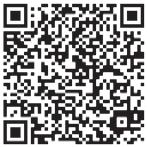
Template A: Setting Your Learning Goals
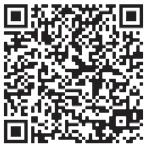
Template B: Your Study Timetable
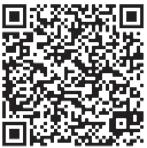
2. Monitoring Your Progress and Recording Your Achievements
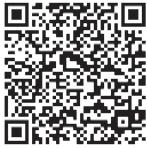
Template D: Monthly Review
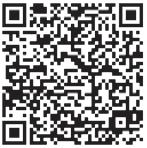
Template E: Tracking Your Results Subject by Subject
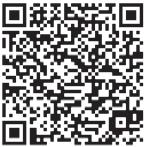
Template C: Subject Revision Planner
Template F: Other Areas of Learning
3. Reflecting on Your Learning and Progress - Reflections on your monthly learning
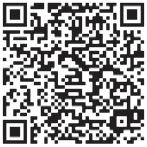
Template G: Reflecting on Your Assessments
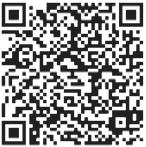
Template H: Outcomes to Goals
DATE
SUBJECT TIME
DATE
SUBJECT TIME
ReadandReread – Read all exam questions carefully, then read them again. The second time round, underline or highlight the key points.
UseTimeWisely – Take note of how many marks are awarded for each question and divide your time accordingly. If you feel you can’t fully answer a question just try it, marks are awarded for attempts and partial answers.
EatforSuccess – Fizzy energy drinks will only boost you for an hour, but by eating slow energy release foods such as porridge with nuts and fruit you will have the energy for a full day of exams.


QR codes to access online resources
Curriculum broken down, reducing students’ workload
Sample questions and answers to past papers
ers and
Student-friendly language and modern graphics

Student Name: Class:
Absent from: / / to / / No. of days:
Reason: Illness Urgent Family Reason Holiday
Other (please specify, eg; Medical Appointment, School Activity, Dentist, Open day, etc.):
Details
1 2 3 4 1 2 3 4
Signed by Parent/Guardian:Date: / / Signed by Teacher:Date: / /
Student Name: Class:
Absent from: / / to / / No. of days:
Reason: Illness Urgent Family Reason Holiday
Other (please specify, eg; Medical Appointment, School Activity, Dentist, Open day, etc.):
Details
Student Name: Class:
Absent from: / / to / / No. of days:
Reason: Illness Urgent Family Reason Holiday
Other (please specify, eg; Medical Appointment, School Activity, Dentist, Open day, etc.):
Student Name: Class:
Absent from: / / to / / No. of days:
Reason: Illness Urgent Family Reason Holiday
Other (please specify, eg; Medical Appointment, School Activity, Dentist, Open day, etc.):
Details
Signed by Parent/Guardian:Date: / / Signed by Teacher:Date: / /
Student Name: Class:
Absent from: / / to / / No. of days:
Reason: Illness Urgent Family Reason Holiday
Other
Details
Student Name: Class:
Absent from: / / to / / No. of days:
Reason: Illness Urgent Family Reason Holiday
Other (please specify, eg; Medical Appointment, School Activity, Dentist, Open day, etc.):
Student Name: Class:
Absent from: / / to / / No. of days:
Reason: Illness Urgent Family Reason Holiday
Other (please specify, eg; Medical Appointment, School Activity, Dentist, Open day, etc.):
Details
Signed by Parent/Guardian:Date: / / Signed by Teacher:Date: / /
Student Name: Class:
Absent from: / / to / / No. of days:
Reason: Illness Urgent Family Reason Holiday
Other (please specify, eg; Medical Appointment, School Activity, Dentist, Open day, etc.):
Details
Student Name: Class:
Absent from: / / to / / No. of days: Reason: Illness Urgent Family Reason Holiday
Other (please specify, eg; Medical Appointment, School Activity, Dentist, Open day, etc.):
/ /
Student
Absent from: / / to / / No. of days:
Reason: Illness Urgent Family Reason Holiday
Other (please specify, eg; Medical Appointment, School Activity, Dentist, Open day, etc.): Details
Student
Reason: Illness Urgent Family Reason Holiday
Other
Absent from: / / to / / No. of days: Reason: Illness Urgent Family Reason Holiday
